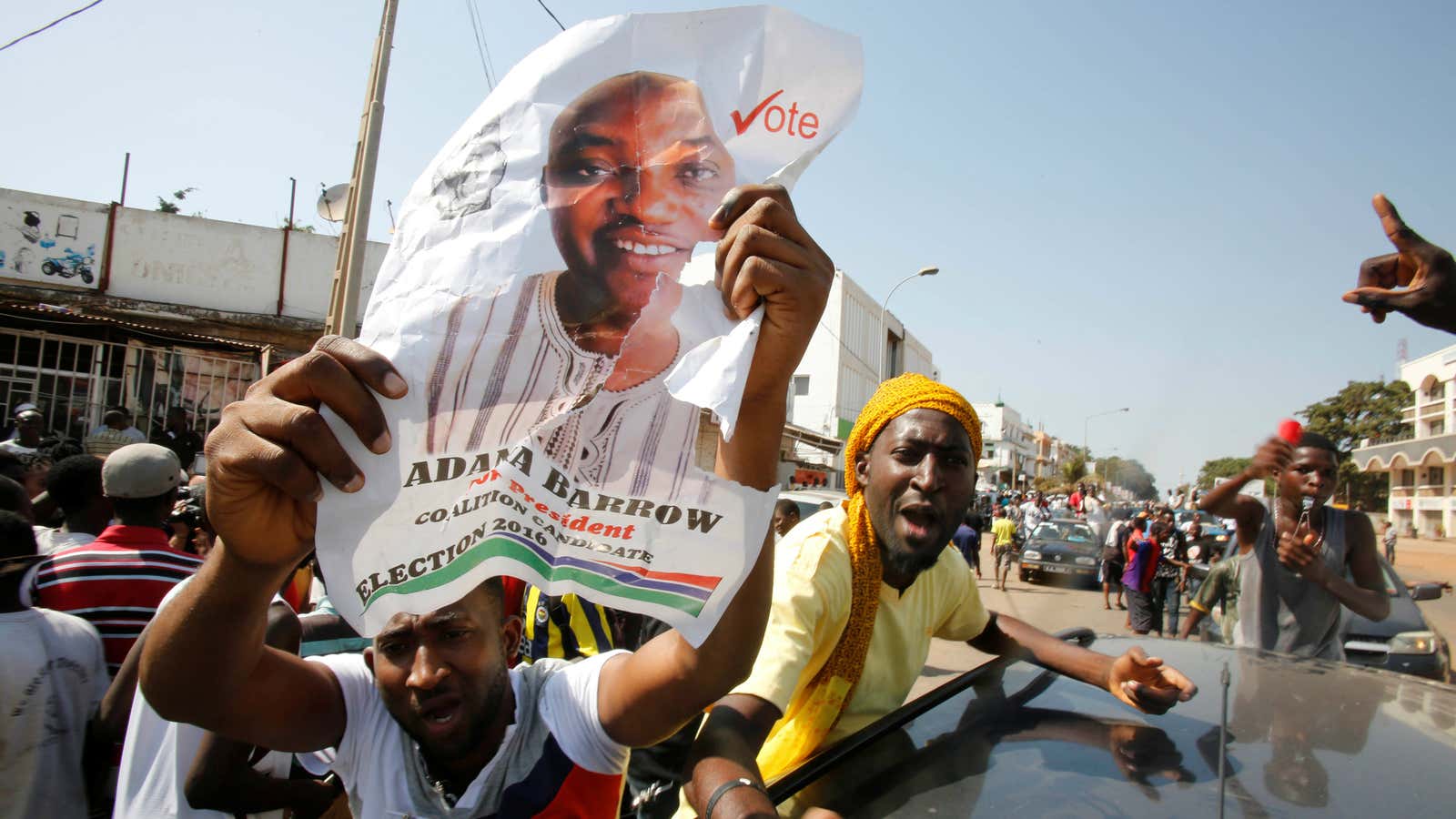As the dust settles on Gambia’s historic Dec. 1 elections, the focus will start to turn to president-elect Adama Barrow’s plans to shape the future of the tiny West African nation.
Barrow, who studied and worked as a security guard in London before returning to Gambia in 2006 to start a property business, comes to the job without any political experience or baggage. He says he wants to create a “democratic environment” in Gambia, a new era distinct from the long-standing climate of fear which held sway under Yahya Jammeh, Gambia’s outgoing president. Jammeh is expected to hand over power at the end of January.
In an interview with DW Africa while campaigning, Barrow promised to release opposition figures imprisoned by Jammeh, Gambia’s autocratic president for the past 22 years. “These things cannot continue,” he said referring to Jammeh’s tactic of clamping down on opposition figures. “In democracy, people are free. We will bring an environment where there is no fear.”
Barrow promised to foster democracy in a country where free speech, press freedom and human rights have been suppressed, saying it will be key to reversing a downward trend of development and a weakening economy. ”In a democratic environment, everything is possible for real development,” he said. “We have experienced politicians and technocrats who have come together. If we win, we will build a good team that will advise us as we develop this country.”
Not much is known of Barrow’s early years, but his time working as a security guard in a London store in the early 2000s has been well reported. That fact was not missed by opposition campaigners, who pointed it out with derision. But Barrow, who was studying for the qualifications he needed for the real estate business he has ran in Gambia for the past decade, says he is proud of that experience and he cites it as proof of his work ethic. “Life is a process, and the UK helped me to become the person I am today,” Barrow told Le Monde. “Working 15 hours a day builds a man.” Running his own business, Barrow says, he works “12, 13, 14 hours a day.”
Barrow’s reforms could also mean a re-establishment of better relations with the West. Under Jammeh, Gambia has pulled out of the Commonwealth and the International Criminal Court, and has strained relationships with donor groups. Karamaba Touray, Barrow’s spokesman, says the new government will reverse those actions.
There’s an urgent need for economic growth in Gambia. With around 60% of the country living in poverty, Gambians have increasingly looked to Europe for greener pastures. Despite a population of less than two million people, Gambians are the fourth-largest group of migrant arrivals in Italy. And in a year that has been the deadliest on record for migrants crossing the Mediterranean, Gambia has suffered tragic losses.
Barrow will also face a dicey situation handling his predecessor once he’s sworn in. Given Jammeh’s track record of human rights abuses, Barrow will have to decide whether to investigate and prosecute Jammeh.
“We don’t have a grudge against anyone. If there are files to be judged, we will do it,” Barrow said about the possibility. “We respect the constitution and the rights of all, but the law will be applied to everyone.”
